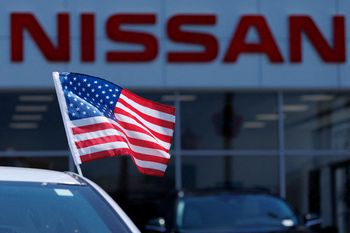Trump Claims 15% Tariff Included in Japan Trade Deal

New Trade Deal Between the U.S. and Japan Sparks Market Reactions
A new trade agreement between the United States and Japan has been announced, marking a significant development in bilateral relations. According to reports, the deal involves a reduction in tariffs on U.S. imports from Japan, specifically lowering the rate from 25% to 15%. This includes a wide range of goods, such as automobiles, agricultural products, and other key items.
President Donald Trump made the announcement through his social media platform, Truth Social. He highlighted that the agreement would also bring in $550 billion in Japanese investments into the U.S. economy. Additionally, he mentioned that Japan would enhance market access for American producers of cars, trucks, rice, and certain agricultural products.
The deal reportedly includes a reduction in the tariff on Japanese motor vehicles, which make up a substantial portion of Japan's exports to the U.S. Despite this, Trump's post did not explicitly mention this change. However, Japanese government officials have confirmed that the auto tariff will be reduced to 15%, according to NHK.
Trump expressed enthusiasm about the deal, stating it was an exciting time for the U.S. and emphasizing the importance of maintaining a strong relationship with Japan. The two countries have a significant trade volume, with two-way trade in goods reaching nearly $230 billion in 2024. Japan holds a trade surplus of nearly $70 billion with the U.S., making it the fifth-largest trading partner for the U.S. in goods.
Market Reactions and Economic Implications
The announcement had an immediate impact on financial markets. Japanese stocks saw a surge, particularly in the automotive sector, with major companies like Honda, Toyota, and Nissan experiencing gains of 6% or more. U.S. equity index futures also showed positive movement, while the yen strengthened against the dollar.
However, details of the deal remain scarce, and Reuters could not immediately verify all aspects of the agreement. The White House did not respond to requests for further information at the time of the report.
Japanese Prime Minister Shigeru Ishiba addressed the situation in Tokyo, stating that he had received an initial report from his trade negotiator in Washington. However, he declined to comment on specific details of the negotiations. Ishiba is facing political pressure in Japan after losing control of the upper house in recent elections.
Ishiba noted that he could not determine how the trade deal would affect his decision on whether to step down from office until he reviewed the details. The deal follows a meeting between Trump and Japan's top tariff negotiator, Ryosei Akazawa, at the White House on Tuesday. Akazawa posted "#Mission Complete" on X, indicating the successful outcome of their discussions.
Economic Experts' Perspectives
Economists have offered insights into the potential impacts of the deal. Kazutaka Maeda, an economist at Meiji Yasuda Research Institute, suggested that the 15% tariff rate could help Japan avoid a recession. Kristina Clifton, a senior economist at the Commonwealth Bank of Australia, noted that the deal is a better outcome for Japan compared to what could have been if Trump had proceeded with higher tariffs.
Automobiles are a crucial part of U.S.-Japan trade, but the flow is largely one-way, with the U.S. importing over $55 billion in vehicles and parts from Japan in 2024, while only $2 billion in U.S. goods were exported to Japan.
Broader Trade Strategy and Future Agreements
Trump has been actively pursuing trade deals ahead of an August 1 deadline, which he has pushed back multiple times under pressure from markets and industry lobbying. By this date, countries may face steep new tariffs beyond those already imposed since his inauguration in January.
While Trump has stated that unilateral letters declaring tariff rates can be considered as deals, his team has continued to work on formal agreements. Recent framework agreements have been announced with Britain, Vietnam, and Indonesia, and a pause in the tariff battle with China has been reported, though details remain pending.
At the White House, Trump mentioned that European Union negotiators would be arriving in Washington on Wednesday. His approach to announcing agreements often involves social media, sometimes before the other country issues its own statements. For instance, similar to the recent announcement with Vietnam, no formal statement has been released by either country detailing the specifics of the deal.